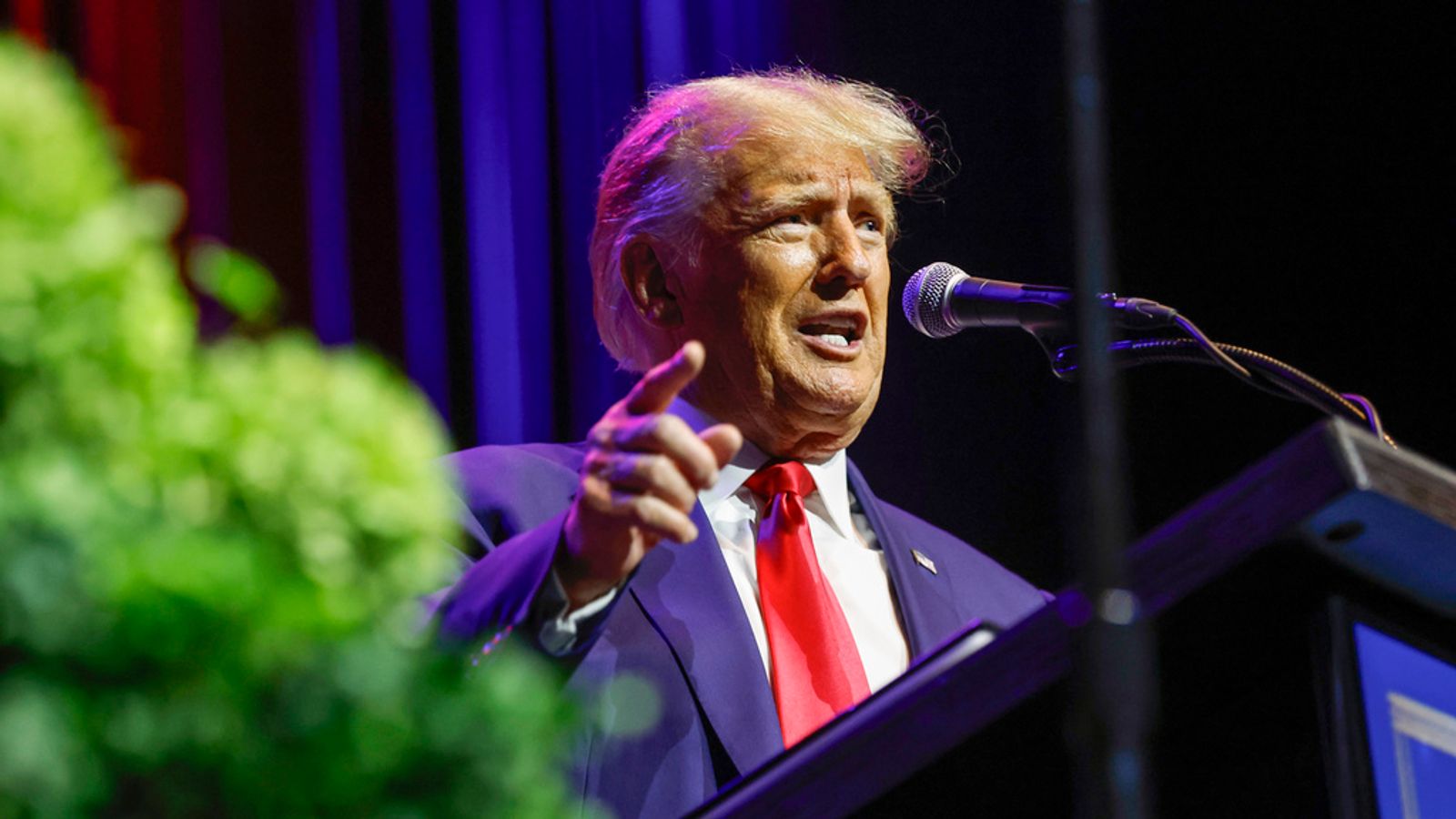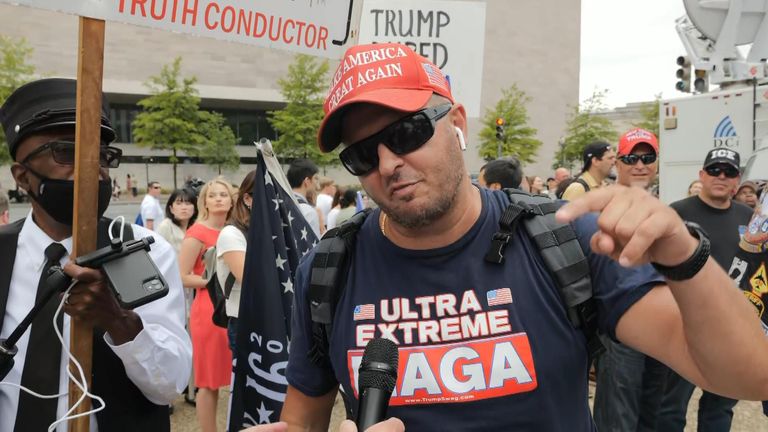Donald Trump defends ‘harmful’ social media post as ‘political speech’


A social media post by Donald Trump written in all-capital letters saying “if you go after me, I’m coming after you!” could be interpreted as intimidating, US prosecutors have said.
Mr Trump posted the message on his Truth Social platform on Friday afternoon a day after he pleaded not guilty to charges relating to attempts to overturn the results of the 2020 election, which he lost to President Joe Biden.
The all-capitals message was quickly flagged in a late-night court filing by the office of special counsel Jack Smith, who is leading the investigation into the former president’s role in the January 6 Capitol riots.
The filing argued the post suggests Mr Trump might intimidate witnesses by improperly disclosing confidential evidence received from the government.
Under the process known as discovery, prosecutors are required to provide defendants with the evidence against them so they can prepare their defence.
“It could have a harmful chilling effect on witnesses or adversely affect the fair administration of justice in this case,” prosecutors wrote.
Please use Chrome browser for a more accessible video player
2:38
Trump: ‘A very sad day for America’
Read more:
What is the case against Donald Trump?
What is Donald Trump’s defence strategy?
A spokesperson for Mr Trump has since claimed the post was in response to RINOs (Republicans in name only) and other political opponents, not people linked to his court case.
“The Truth post cited is the definition of political speech, and was in response to the RINO, China-loving, dishonest special interest groups and super PACs [political action committee],” they said in a statement.
Advertisement
Please use Chrome browser for a more accessible video player

1:09
‘I would support King Trump!’
The indictment over the Washington DC insurrection is the third time in four months Mr Trump has been criminally charged even as he campaigns to regain the presidency.
In Miami, he pleaded not guilty to allegations that he unlawfully kept national security documents when he left office and lied to officials, trying to recover them.
He also pleaded not guilty in New York to 37 charges relating to falsifying business records “in order to conceal damaging information and unlawful activity from American voters before and after the 2016 election”.